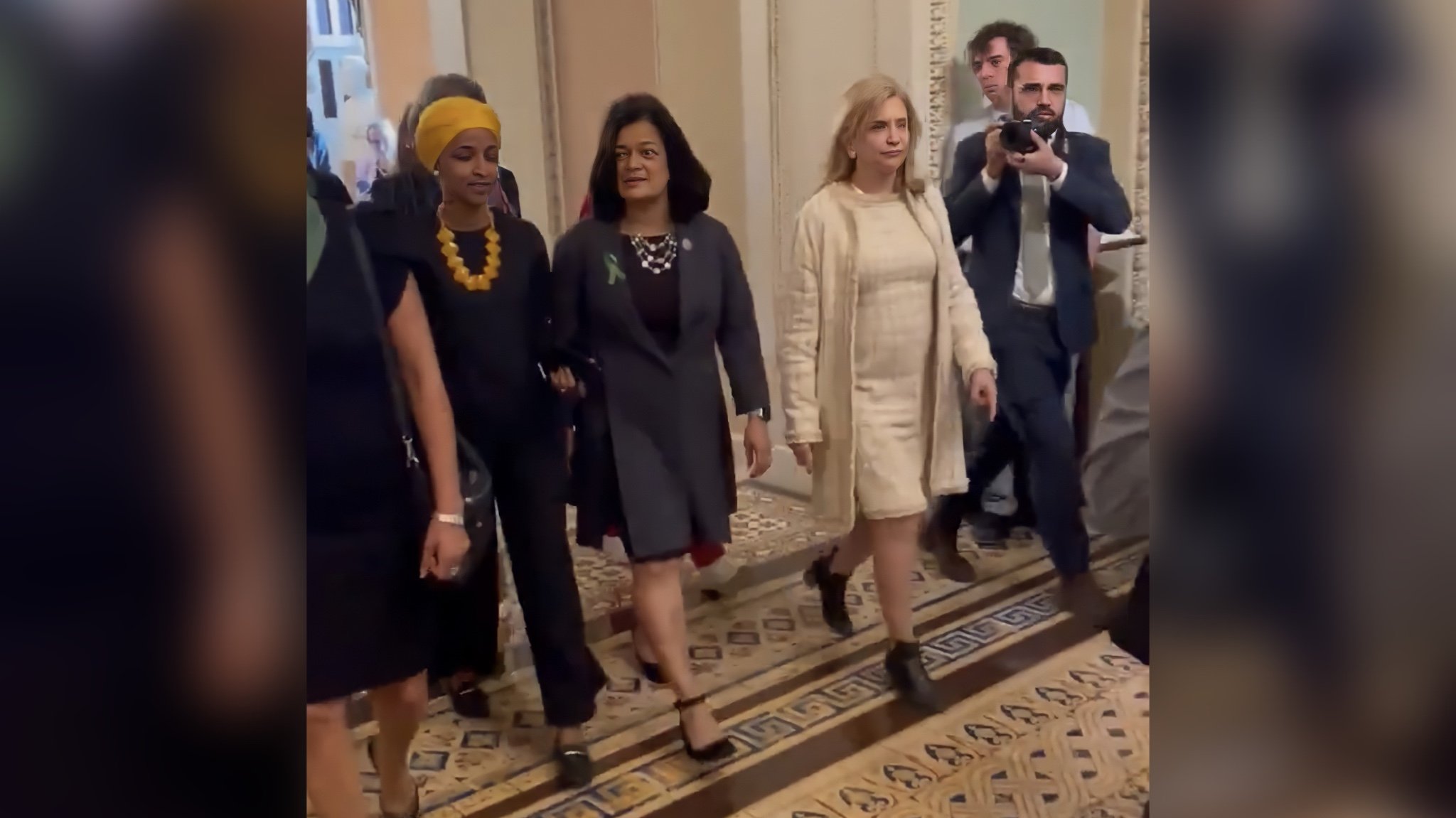Pro-Abortion House Democrats March on Senate Chanting “My Body, My Decision!”
A large group of pro-abortion House Democrats marched on the Senate Wednesday as the upper chamber prepared to vote on a bill legalizing abortion, the so-called Women’s Health Protection Act. The bill is doomed to fail in the Senate but is being voted on to rally Democrats for the mid-term elections in the wake of the leak of a draft Supreme Court decision overturning Roe v. Wade that would return abortion matters to the states.
 Screen image via Scott Wong/Twitter.
Screen image via Scott Wong/Twitter.
The noisy mob marched through the Capitol surrounded by reporters filming the protest.
Democratic House lawmakers march to the Senate side, changing “my body, my decision!” on the day of the WHPA vote. pic.twitter.com/duoZcQqObs
— Ali Vitali (@alivitali) May 11, 2022
House Democratic women march to the Senate before abortion vote, chanting “my body, my decision!” pic.twitter.com/4FW5xstnyn
— Scott Wong (@scottwongDC) May 11, 2022
House Democrats march to the Senate side chanting “my body my decision” ahead of the Senate vote aimed at preserving access to abortion nationwide, which is expected to fail. pic.twitter.com/OO76vUN8dV
— Annie Grayer (@AnnieGrayerCNN) May 11, 2022
House Democrats have walked to the Senate side of the Capitol, chanting “my body, my decision” in the hallways outside the Senate chamber ahead of procedural vote on bill that would codify Roe v. Wade. pic.twitter.com/RrunTyU5ub
— Jennifer Shutt (@JenniferShutt) May 11, 2022
About three dozen Members entered the Senate chamber where they had to be shushed for applauding a speech by Sen. Patty Murray (D-WA).
At least 37 House Dems are in the Senate chamber, including Jayapal, Clark, Omar, Tlaib, Cicilline, Bustos, Takano, Escobar, Espaillat
They applauded when @PattyMurray wrapped up her speech and were told those expressions not allowed in the chamber.
— Scott Wong (@scottwongDC) May 11, 2022
Excerpt from Vox explainer on the WHPA:
The Women’s Health Protection Act would enshrine into federal law the right to access and perform an abortion, and it would supersede state laws on the issue. It would effectively neutralize laws in 19 states that have sought to severely curb access to abortion or ban it altogether.
Specifically, the act would bar six-week and 20-week bans on abortions. It would also prohibit policies, like ultrasound requirements and waiting periods, that attempt to make it more burdensome to obtain an abortion. The legislation’s text makes it clear that it’s a direct response to what the bill’s sponsors say are more than 500 state and local laws limiting abortion access implemented in some way since 2011.
Such restrictions have disproportionately harmed low-income people — particularly Black and Hispanic people — who are already less likely to have health care coverage for abortions, and who face more obstacles accessing alternative options if their states erect barriers.
While the WHPA would provide sweeping abortion protections, it wouldn’t supersede laws addressing insurance coverage for abortions. There have been strict limits on Medicaid coverage of abortions because of the Hyde Amendment’s restrictions on the use of federal funding for such health care. Democrats had hoped to get rid of the rule, which typically hitches a ride on appropriations legislation, but couldn’t get the Republican votes they needed to do so.






